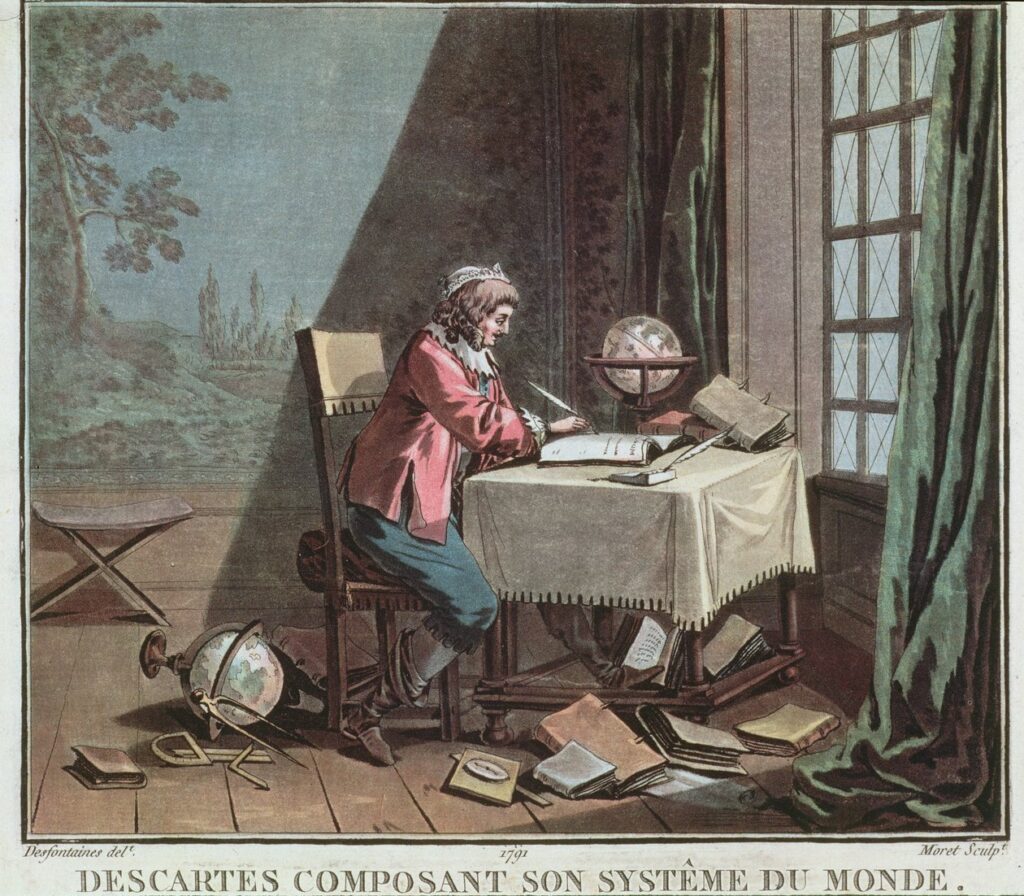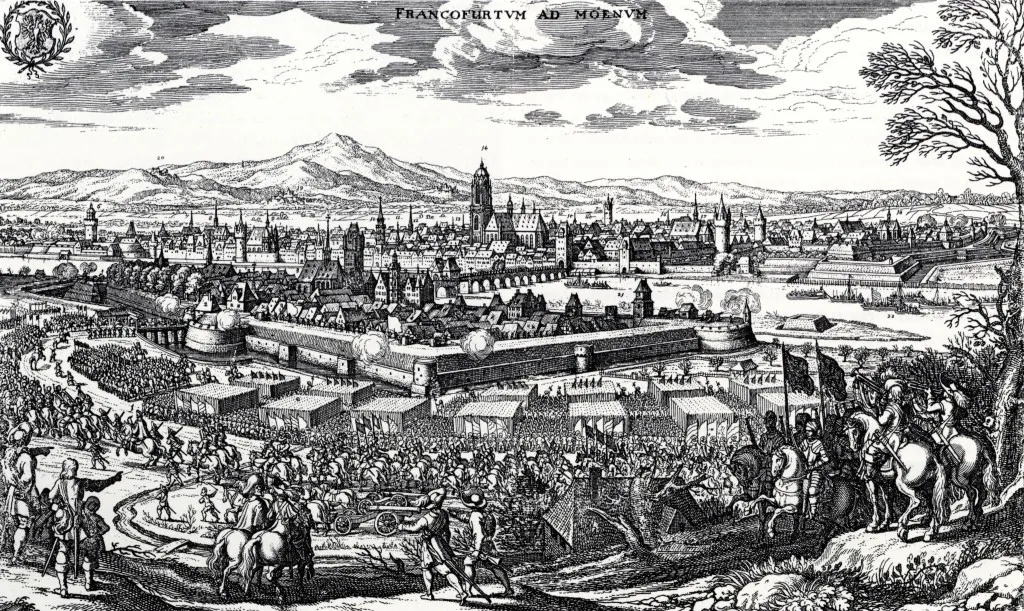My Meaning, Your World: The Crisis of Truth
Beezone

“”When the roots are deep, there is no reason to fear the wind.”
ancient proverb
 n today’s world, where every person wields a smartphone and every opinion echoes across a global stage, humanity stands at a crossroads. Once, people lived in smaller communities, guided by shared traditions, moral frameworks, and collective truths. But in the “global village” we now inhabit, those common threads have unraveled, leaving individuals adrift in a sea of competing beliefs and unchecked egotism. This transformation is not merely a cultural shift—it is the unintended consequence of a centuries-long philosophical journey that began with the well-meaning meditations of René Descartes. In asserting the independence of the individual mind, Descartes unlocked an era of immense intellectual freedom, but he also set humanity on a path toward fragmentation and isolation.
n today’s world, where every person wields a smartphone and every opinion echoes across a global stage, humanity stands at a crossroads. Once, people lived in smaller communities, guided by shared traditions, moral frameworks, and collective truths. But in the “global village” we now inhabit, those common threads have unraveled, leaving individuals adrift in a sea of competing beliefs and unchecked egotism. This transformation is not merely a cultural shift—it is the unintended consequence of a centuries-long philosophical journey that began with the well-meaning meditations of René Descartes. In asserting the independence of the individual mind, Descartes unlocked an era of immense intellectual freedom, but he also set humanity on a path toward fragmentation and isolation.
At the heart of this crisis is a split—a “schizoid divide”—between the rational and the spiritual, between the material and the transcendent, between the “I” and the “we.” – BODY/MIND. It’s as if humanity, in splitting the atom, has also split the psyche, severing the heart and soul from its connection to something greater. This divide runs deeper than mere philosophical abstraction. It is felt in the everyday disconnection we experience: the loneliness of scrolling through endless opinions on social media, the anxiety of navigating a world where no shared moral compass exists, and the gnawing sense that truth itself has become a matter of personal convenience rather than universal principle.
The Rise of the “Me” in the Global Village

Imagine Descartes, alone by the banks of the Danube, questioning everything he had ever been told. In that solitude, he concluded, “I think, therefore I am.” For Descartes, this was a profound insight—a way to anchor knowledge in something indubitable: the thinking self. But the world Descartes lived in was one of relative stability. Religious, cultural, and philosophical traditions still served as guideposts for society, even as they were being questioned. The individual’s newfound freedom to think independently existed alongside a larger framework that tempered egotism.
Fast forward to today, where that balance has disappeared. The principle of individuality that began as a means to liberate the mind has now devolved into a mantra of self-centeredness: “My truth is the only truth.” In our global village, every opinion can find an audience, every belief a platform. Without any agreed-upon guidelines—whether religious, philosophical, or moral—to tether us to a shared reality, the individual ego has become supreme. And while individuality is essential to creativity and growth, its unchecked dominance is as dangerous as a ship adrift without a rudder.
The Schizoid Split: Breaking More Than Atoms
This unchecked egoism has split us, not only from one another but from ourselves. Like the atom, once seen as the smallest unit of matter, we have been broken down into parts that now war against each other. The rational mind dismisses the intuitive heart. Material science, in its relentless pursuit of control, denies the existence of subtler energies and dimensions. And the result is a hollow existence, where the human spirit—once nurtured by shared stories, rituals, and connections—has been cast aside as superstition or fantasy.
The split is evident in the rise of anxiety, depression, and existential emptiness. We are more connected than ever before, yet lonelier. We have more knowledge at our fingertips, yet less wisdom. We can engineer technologies to communicate instantly across the globe, yet struggle to understand the person sitting next to us. This schizoid divide is not just a personal crisis—it is a global one. A world of fragmented individuals, each convinced of their own supremacy, is a world on the brink of chaos.
The Need for a Guiding Star
Without a guiding star, humanity is like a child lost in the wilderness, stumbling through the dark. In the past, shared traditions served as that star. They were not perfect, but they provided a framework for curbing egotism and connecting the individual to something greater—whether it was God, the cosmos, or the collective good. Today, those traditions have been replaced by the cult of the self. The danger is clear: a society that worships individual opinion above all else cannot sustain itself. The atomization of truth leads to the atomization of society, and with it, the disintegration of trust, cooperation, and mutual understanding.
Reconnecting the Heart and Soul
To move forward, we must find a way to reconnect—to bridge the gap between the rational and the spiritual, between individuality and community, between the head and the heart. This does not mean rejecting scientific progress or individuality but placing them within a larger context. Just as a river must flow within its banks to be life-giving rather than destructive, so too must the individual ego find its place within a greater whole.
We need new stories and frameworks that honor the individuality Descartes championed while also acknowledging the interconnectedness that ancient traditions understood so well. These frameworks must remind us that truth is not merely a personal invention but a shared journey—a dance between the “I” and the “we.”
Conclusion: The Crisis of Truth
The crisis of truth we face today is not just a philosophical problem; it is a human one. It is a crisis of meaning, of connection, of the soul. The principle of individuality that began with Descartes has taken on a life of its own, untethered from the moral and spiritual frameworks that once guided it. To heal the schizoid split, we must rediscover what it means to live not just as individuals but as part of a greater whole. Only then can we move beyond the fragmented “my meaning” to embrace the deeper truth of “our world.”
Recommended Reading List
-
Meditations on First Philosophy by René Descartes
- A foundational text for understanding the principle of individuality and the beginnings of modern philosophy. Descartes’ method of radical doubt and the cogito are essential starting points.
-
The Ego and Its Own by Max Stirner
- A provocative exploration of individualism and egoism, this work challenges traditional notions of morality and community, providing insights into the dangers of unchecked individuality.
-
The Disenchantment of the World: A Political History of Religion by Marcel Gauchet
- Examines how the shift from religious to secular societies has impacted meaning, community, and the human psyche, particularly in the context of scientism and modernity.
-
Modern Man in Search of a Soul by Carl Gustav Jung
- Jung’s reflections on the psychological and spiritual crises of modern humanity, offering a counterpoint to materialism by emphasizing the psyche’s depth and connection to the collective unconscious.
-
The Postmodern Condition: A Report on Knowledge by Jean-François Lyotard
- A seminal text on postmodernism, Lyotard critiques the decline of grand narratives and the relativism that characterizes contemporary thought.
-
The Abolition of Man by C.S. Lewis
- A concise but profound critique of moral relativism and the reduction of human values to mere subjective preferences, arguing for the necessity of objective moral truths.
-
The Technological Society by Jacques Ellul
- Investigates the impact of technological progress on human values, spirituality, and community, addressing how scientism has reshaped human priorities.
-
Zen and the Art of Motorcycle Maintenance: An Inquiry into Values by Robert M. Pirsig
- A modern classic blending philosophy and narrative, this book explores the tension between rationality and the more intuitive, holistic ways of understanding the world.